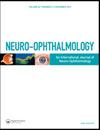脑卒中及脑肿瘤患者便携式视觉设备的可行性研究
IF 0.8
Q4 CLINICAL NEUROLOGY
引用次数: 0
摘要
本前瞻性单中心队列研究旨在评估便携式视力阅读设备OrCam Read对脑卒中或脑肿瘤所致低视力患者视力相关生活质量和独立功能状态的影响。6例因中风或脑肿瘤导致的视力低下或视野缺损患者在美国眼科登记。在为期1个月的研究期间,参与者接受了使用OrCam Read的培训,并获得了一个外借设备。在第一次和最后一次就诊时进行了各种评估,包括日常功能测试、国家眼科研究所视觉功能问卷-25和10项神经眼科补充。通过每周一次的电话和研究结束时的满意度调查来评估患者使用该设备的体验。主要结局指标为患者对OrCam的满意度和入组至终诊期间的平均评估得分。OrCam的干预显著提高了患者完成日常任务的能力,参与者对该设备的满意度很高。结果还显示,在远距离活动、依赖性和角色困难方面没有显著的改善。我们的研究结果证明了在该患者群体中使用便携式视力设备研究视力相关生活质量的可行性,并为验证本研究结果的更大规模研究铺平了道路。本文章由计算机程序翻译,如有差异,请以英文原文为准。
A Feasibility Study on a Portable Vision Device for Patients with Stroke and Brain Tumours
This prospective, single-centre cohort study aimed to evaluate the impact of a portable vision reading device, OrCam Read, on vision-related quality-of-life and independent functional status in patients with low vision due to stroke or brain tumours. Six patients with poor visual acuity or visual field defects due to a stroke or a brain tumour were enrolled at a U.S. Ophthalmology Department. Participants were trained to use OrCam Read and given a loaner device for the 1 month duration of the study. Various assessments, including daily function tests, the National Eye Institute Visual Function Questionnaire-25, and the 10-item neuro-ophthalmic supplement, were administered at the first and last visits. Patients’ experience with the device was evaluated with weekly telephone and end-of-study satisfaction surveys. The main outcome measures were the patient satisfaction with OrCam and the mean assessment scores between enrolment and final visits. The intervention with OrCam significantly improved patients’ ability to complete daily tasks and participants reported good satisfaction with the device. The results also show non-significant improvement with distant activities, dependency, and role difficulties. Our findings demonstrate the feasibility of studying vision-related quality-of-life using a portable vision device in this patient population and pave the way for a larger study to validate the results of this study.
求助全文
通过发布文献求助,成功后即可免费获取论文全文。
去求助
来源期刊

Neuro-Ophthalmology
医学-临床神经学
CiteScore
1.80
自引率
0.00%
发文量
51
审稿时长
>12 weeks
期刊介绍:
Neuro-Ophthalmology publishes original papers on diagnostic methods in neuro-ophthalmology such as perimetry, neuro-imaging and electro-physiology; on the visual system such as the retina, ocular motor system and the pupil; on neuro-ophthalmic aspects of the orbit; and on related fields such as migraine and ocular manifestations of neurological diseases.
 求助内容:
求助内容: 应助结果提醒方式:
应助结果提醒方式:


